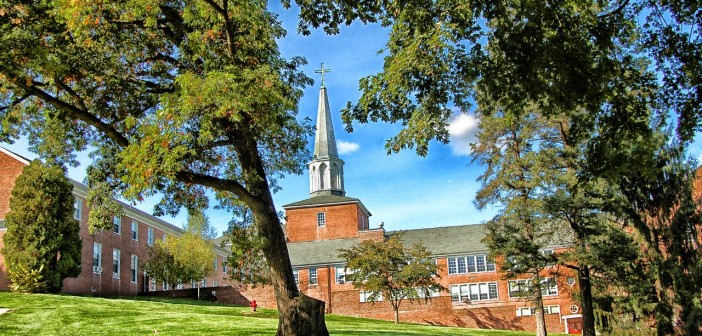For many students, campus ministry becomes a community of friends, a home away from home, a kind of extended family. It is a body of believers with whom students grow and play, worship and serve. It is a community of faith that becomes church for students because it is more than a place, more than an activity, more than an hour a week. It is for them the embodiment of the people of God where they are in their lives in that moment.
The church is losing young people because once they have experienced the power of true Christian community on campus, they cannot find it in our local churches.
For young adults, it is no small thing to find a sense of belonging in the church. It is no small thing to have a supportive community to walk with through these challenging and, at times, overwhelming years. It is no small thing to know that your friends are praying for you as a family member is passing away. It is no small thing to have a group of peers to work beside in healing the hurts of the world.
The challenge for the church, however, is what happens to these young people when they leave college. Because of these vibrant campus ministry experiences, many students graduate and realize that the church is not that kind of community. In the transition group that I do with seniors, we spend time talking about the reality of church beyond campus ministry. Fully warned and braced for what they are going to find when they enter the “real world,” they still return to campus to report that they cannot find a church home that has a ministry for young graduates.
Let’s face it: the church is geared toward families. We have Sunday School and scouts, youth groups and choirs. We have service projects and worship. But when it comes to ministries that serve a post-graduate, largely single population, the church often does not know what to do. The fact of the matter is the church is losing young people because once they have experienced the power of true Christian community on campus, they cannot find it in our local churches.
One of our graduates now attends a non-denominational congregation because she could not find a church within her own denomination that had any ministry whatsoever to young professionals. What she found in the church she now attends, however, was a variety of small group offerings for her age group and a culture that both welcomes and assimilates young people into the full ministry of the church. Some of our other graduates have found church homes within their denomination. Recently I asked them what it was that drew and kept them there. Here is what I learned:
- Because many are single, they are looking for a safe place to meet people their age with shared values.
- Single, or newly married without children, they have time to give to the church and their community.
- As part of Generation Y, they are all about relationships, and those are best formed outside of worship: in small study groups, supper clubs or service opportunities — sub-communities that make the larger church feel manageable.
- As graduates of campus ministries, they seek active, creative, energetic worshipping communities that provide opportunities that connect the spiritual with the social.
- They have matured in their faith such that they look to the church more for community than comfort and more for service than having their own needs met. They have come to experience church not as a place to go or something to do but as who they are as the people of God.
- As the first generation to grow up with the world wide web, they look for communities of interest and connection on the internet, so having a web presence is critical.
- Still at a transient stage of life, not ready to put down roots and able to take off for the weekend at a moment’s notice, they gravitate toward communities that place few expectations on their attendance but welcome them when they are present.
For too long, too many congregations have assumed that young people will come back to the church when they have children. But in the 21st century, with so many ways beyond the church to meet the needs of the world, with so many other things to do with weekends, with so many demands placed on their own time, young people have to have a compelling reason to go to church.
If the church is going to thrive, we have to provide ministry that nurtures post-college young adults where they are. The key to a successful ministry to this generation is identifying the population in your midst and working with them to provide the programming and space they want. Chances are good that if you can nurture a few, they will invite their friends; and before you know it, your church will have a vibrant ministry with young adults, who in turn will pump new life and energy into your congregation






